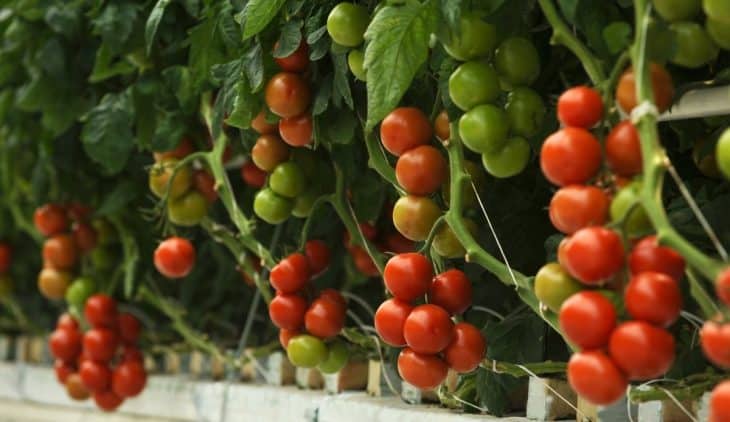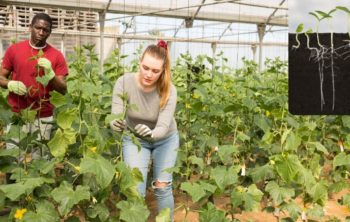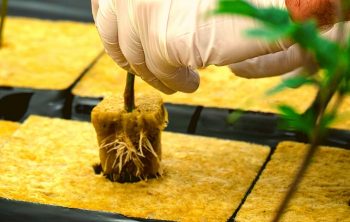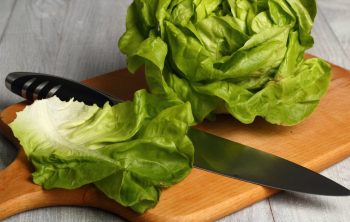The question we are going to answer in this article is: what is the best pH for hydroponic tomatoes?
Growing in hydroponics has different requirements to maintain a steady and rewarding process. pH is one key factor in hydroponics and we are going to be talking about the best pH for hydroponic tomatoes. So, read on to learn.
Some Info About Hydroponics pH
In hydroponics, pH is very crucial in gratifying you with successful hydroponics farming. Even if you maintain other requirements such as lighting, temperature, aeration, nutrient, humidity, plant spacing, good growing medium, and humidity: if you fail to maintain the correct nutrient solution pH range, your plants will malfunction.
A consensus among farmers has agreed that the most appropriate pH for hydroponics should be slightly acidic which is 5.5 to 6.5 ranges.

Best pH for Hydroponic Tomatoes
The best pH for your growing hydroponic tomatoes for water should range from 5.0 to 6.8 for adequate nutrient take up. While the best pH nutrient solution for hydroponic tomatoes should range from 5.5 to 6.0.
Ensure you always test the pH levels of your nutrients solutions with good testing kits so your hydroponics tomatoes are always in the right pH range.
Why pH is Important for Hydroponic Tomatoes
The pH in hydroponics tomatoes is very important to aid nutrient absorption. The rate at which nutrients are absorbed in hydroponics plants varies with different pH levels. You need to create the appropriate environments which will support the absorption of essential nutrients by plant roots and maintaining the right pH is the way to go.
If you fail to provide the right pH for your hydroponics tomato plants, they stand a chance of nutrient lockout. This means your tomatoes will starve even if you are providing them with adequate nutrients. They just won’t absorb them.
Measuring pH Levels In Hydroponic
As we have made it clear that the pH of your nutrient solution is a crucial factor, keeping track of it is important. Therefore, ensure you always test your nutrient solution pH after adding nutrients or adjusters.
Some great measuring tools are the pH testing solution, pH test strips, and digital pH meter.
Adjusting pH Levels In Hydroponics Tomatoes
Keeping track of pH and adjudging appropriately will guarantee the availability of nutrients to your hydroponics tomatoes. Anytime you realize your pH test levels are out of range, that’s a sign your hydroponics needs appropriate adjustments.
However, we recommend you allow a bit of pH level falls out. This is because most plants do not like abrupt changes in their growing environment like an abrupt change in a pH nutrient solution. It can cause stress to your plants. We recommend you allow your plant to adjust a forgiving perspective to slight pH changes.
Availability of Nutrients For pH Requirements In Hydroponic Tomatoes
Some nutrients can be influenced differently by changes in pH levels than other nutrients. Nutrients such as sulfur, nitrogen, phosphorous, potassium, and others are made available across a different range of pH scale.
Any deficiency in most of these nutrients can affect your hydroponics tomatoes crop yields. Too low pH levels will bring about excessive nutrient uptake and availability which can cause some disorder. Also, too high pH levels will bring about impediments to nutrient uptake and availability.
General Hydroponics pH Control Kit for a Balanced Nutrient Solution
Causes Of Change In Hydroponic Tomatoes pH
Different factors can cause your hydroponics tomatoes pH to change. They include:
- Organic Factors: organic factors such as algae and bacteria can cause slight changes in your hydroponics tomatoes. The solution you need to take is by maintaining a slightly acidic solution. Another way is by keeping the roots of plants clean and getting rid of any dead root materials.
- Gallon per Plant: another factor that can cause the pH of your solution to change is if the amount of solution falls below 1 gallon per plant. This will cause changes in the concentration of your plants’ solution thereby causing a change in pH. Topping up your reservoir with the appropriate amount of water will solve this problem.
- Grow Media: the type of growing media you use for your hydroponic tomatoes matters. Some grow media can react with your solution, causing a pH imbalance. Grow media such as gravel, river rock, and unprepared Rockwool may interfere with the pH level of your system. The solution is to soak your inorganic grow media in pH-adjusted water before use and you’re good to go.

FAQ’s
What is the best pH level for hydroponics?
The best pH level for hydroponics depends on many factors, such as what kind of plant you are growing, and what nutrients you are using. There are many different ways to measure pH, but in hydroponics, we mostly use the ph scale.
1.The ph scale is a logarithmic scale that measures the concentration of hydrogen ions in water. This scale has 7 levels: ph 1 is acidic, ph 7 is basic, and all numbers in between are neutral. In the following table, you can see what the numbers mean
1 Neutral pH
2 Slightly alkaline pH
3 Neutral pH
4 Slightly alkaline pH
5 Neutral pH
6 Slightly alkaline pH 7 Basic pH 8 Extremely alkaline pH
The ideal ph level for growing plants varies depending on the nutrients used. For example, some nutrients will be more beneficial at an acidic pH, while others will be more beneficial at a slightly alkaline pH.
The best level for hydroponics is between 5.5 and 6.
What’s the best pH for tomatoes?
Tomatoes need at least a pH of 2.2 to be edible, and ideally about 3.6 to be sweet. Most home gardens will have an acidity around 4.5, which is fine for eating. If you want more acidity, you can add lime to your soil, but it will reduce the calcium that plants need to grow. The pH of a tomato can also vary from plant to plant.
If your soil is more acidic than that, you can add lime (calcium hydroxide) to it. On the other hand, if your soil is more alkaline than that, you can add sulfur or gypsum (calcium sulfate). But be aware that if you add too much of either, it will lead to nutrient deficiencies in your plants.
If you're not sure what your soil pH is, test it with a soil pH tester.
Do nutrients raise or lower pH?
There are three main groups of nutrients that affect pH: The inorganic ions (e.g., H+ and K+), which contribute positively to pH. The ratio of these ions to the total nutrient solution is called the ionic strength, and high ionic strengths cause acidity. Proteins, which contribute negatively to pH. The most important proteins for buffering in soil are legumes (clovers, vetches, etc.).
Soils with high protein content have a lower pH. Organic matter, which contributes positively to pH.
To increase or decrease the pH of my soil, you can use organic and inorganic acidifying agents to alter pH. Organic acids such as acetic acid and phosphoric acid have low concentrations of H+ and are slow acting. Inorganic acids such as hydrochloric acid and sulfuric acid have high concentrations of H+ and are rapid acting.
How does the pH of soil affect plant growth?
The pH of the soil affects how quickly plants take up nutrients. A higher pH will reduce the rate of nutrient uptake by plants. This is because there are fewer hydrogen ions in the soil solution, making it more difficult for the plants to absorb nutrients.
Conclusion
We have concluded that the best pH for hydroponic tomatoes ranges from 5.5 to 6.5 for optimal nutrient uptakes. Ensure you always keep track of your pH levels and adjust accordingly.
Follow our guidelines on pH hydroponic tomatoes and you will enjoy a rewarding process. We do wish you a smooth hydroponic tomatoes garden.

Eunice is an enthusiastic gardener with a passion for growing beautiful flowers. She loves nothing more than spending time in her garden, tending to her plants and enjoying the outdoors. Eunice has been gardening for over 15 years and has developed a unique style of landscaping that is both practical and aesthetically pleasing. She is especially fond of growing roses and enjoys experimenting with different varieties and colors. Eunice takes great pride in her garden and often shares the fruits of her labor with friends and family. In her spare time, she enjoys reading gardening magazines and attending local horticulture events. Eunice is passionate about her hobby and is always eager to share her knowledge and experience with others.





